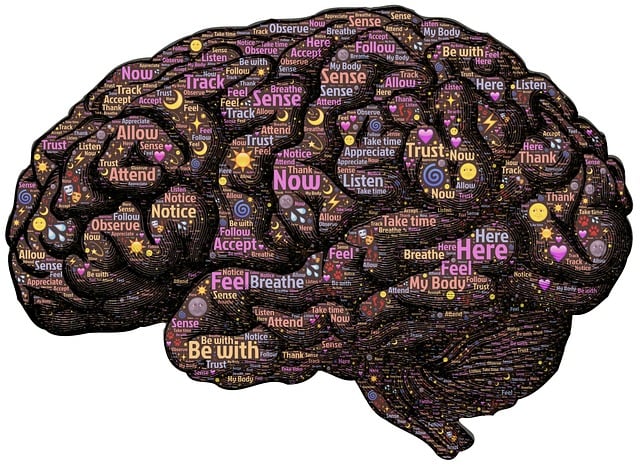Greenwood Village Child Abuse Therapy (GVCAT) is a leading advocate for mental health, focusing on trauma healing and holistic well-being. Through individualized therapy, group sessions, self-care exercises, and education for parents, GVCAT raises awareness, challenges stigma, and promotes access to quality mental health services. Their comprehensive approach, including mindfulness meditation and emotional intelligence training, builds resilience, strengthens support systems, and contributes to improved community mental wellness through policy advocacy and professional development tools.
Mental health advocacy plays a pivotal role in fostering supportive communities and improving access to care. This article explores comprehensive initiatives aimed at addressing mental well-being, with a spotlight on Greenwood Village Child Abuse Therapy as a successful case study. We delve into the significance of advocacy, its benefits for vulnerable populations, and effective strategies to empower individuals. Additionally, we provide insights into overcoming barriers, offering valuable tools and resources for community engagement in promoting mental health awareness and support.
- Understanding Mental Health Advocacy: Why It Matters and Who Does It Benefit?
- Greenwood Village Child Abuse Therapy: A Case Study on Targeted Advocacy Initiatives
- Strategies for Effective Mental Health Advocacy: Tools and Resources
- Overcoming Barriers to Mental Health Advocacy: Tips for Community Engagement
Understanding Mental Health Advocacy: Why It Matters and Who Does It Benefit?

Mental health advocacy plays a pivotal role in creating a more supportive and understanding society. It involves raising awareness, challenging stigma, and promoting access to quality mental health services for all. At its core, advocacy ensures that individuals facing mental health challenges are not only seen but also heard, enabling them to live fulfilling lives. This process is crucial, especially for marginalized communities who often face barriers in accessing appropriate care.
Greenwood Village Child Abuse Therapy exemplifies these efforts by advocating for children and families affected by trauma. Using Mind Over Matter Principles, their initiatives focus on holistic healing, incorporating Social Skills Training to empower individuals with the tools to navigate social interactions confidently. Furthermore, they contribute to Mental Health Policy Analysis and Advocacy, pushing for policy changes that prioritize mental well-being at both local and national levels. Such advocacy ensures a more inclusive and supportive environment, ultimately benefiting everyone within the community.
Greenwood Village Child Abuse Therapy: A Case Study on Targeted Advocacy Initiatives

Greenwood Village Child Abuse Therapy (GVCAT) serves as a compelling example of targeted mental health advocacy initiatives. This organization specializes in supporting children who have experienced abuse, offering therapeutic services tailored to their unique needs. Through a comprehensive approach that includes individual therapy, group sessions, and self-awareness exercises, GVCAT aims to heal trauma and empower young minds. The initiative extends beyond treatment by promoting self-care routine development for better mental health, ensuring children gain the resilience needed to thrive despite their past experiences.
GVCAT also addresses the well-being of healthcare providers through burnout prevention strategies, recognizing that caring for vulnerable individuals can be emotionally taxing. By prioritizing provider mental health, GVCAT ensures sustained quality care. This holistic advocacy model not only benefits the immediate clients but also contributes to building a more robust and compassionate mental health support system within the community.
Strategies for Effective Mental Health Advocacy: Tools and Resources

Mental health advocacy is a powerful tool to raise awareness and reduce the stigma surrounding mental illness. When combined with effective strategies and resources, individuals and communities can create meaningful change. One such resource, tailored for parents and caregivers, is Greenwood Village Child Abuse Therapy, which offers specialized support for children facing emotional challenges. This initiative provides not only therapy but also educational programs designed to equip adults with the knowledge to recognize and address mental health issues early on.
Additionally, professional development plays a crucial role in advocacy efforts. Risk Management Planning for Mental Health Professionals is an essential tool to ensure practitioners are equipped to handle complex cases while prioritizing self-care. These plans help professionals navigate ethical dilemmas, manage stress, and provide quality care. By integrating such resources into their practice, mental health advocates can foster a supportive environment, enhance client outcomes, and contribute to the broader goal of improving mental wellness in communities.
Overcoming Barriers to Mental Health Advocacy: Tips for Community Engagement

Overcoming barriers to mental health advocacy is essential for fostering community engagement and ensuring everyone has access to support. Many obstacles prevent individuals from seeking help, including stigma, lack of awareness, financial constraints, and limited resources. To navigate these challenges, it’s crucial to implement effective strategies that promote understanding and acceptance. Greenwood Village Child Abuse Therapy serves as a beacon of hope, offering specialized services tailored to address unique needs.
One powerful approach is integrating mindfulness meditation and emotional intelligence into community programs. These tools empower individuals with self-awareness and coping mechanisms, encouraging open conversations about mental health. Additionally, teaching communication strategies can help break down barriers by fostering empathetic connections and creating safe spaces for sharing experiences. By combining these initiatives, communities can build resilience, strengthen support systems, and ultimately reduce the burden of mental health struggles.
Mental health advocacy initiatives, as exemplified by Greenwood Village Child Abuse Therapy, play a pivotal role in fostering community resilience and well-being. By understanding the significance of these efforts and utilizing effective strategies, we can overcome barriers to access and support. The case study highlights successful targeted advocacy, demonstrating that tailored interventions significantly benefit vulnerable populations. Equipped with tools and resources from organizations dedicated to mental health advocacy, communities can strengthen their capacity to navigate challenges and promote a culture of open dialogue and care.














